The comfort zone and the science behind motivation.

The purpose of this article is to learn skills to improve productivity and motivation within your personal and professional life. It also explores the importance of stepping out of your comfort zone.
Below I explore how the comfort zone influences motivation, Procrastination, and the importance of intrinsically motivated activities. This article is me sharing the research I did while on my quest for personal development and self-actualization. If it could help me, perhaps it could help you.
Why we love escapism
The definition of escapism is defined as a mental diversion from unpleasant or dull aspects of daily life, typically through activities involving imagination or entertainment. We often escape into our minds when we are stressed or when our reality is no longer stimulating enough.One of the most common ways we deal with problems is often through escapism. Escapism takes many forms, spending too much time on our phones and even reminiscing about the past. Focusing on the present and participating in intrinsically motivated activities can be far more beneficial than escapism.
Intrinsic motivation is doing something because it’s inherently enjoyable; the reward is in the act itself.

The danger of nastalgia
“The danger of nostalgia is believing that nothing will compare to the experience we had previously“

Most of us remember “friends,” not just our own but the infamous sitcom. Just hearing the theme song is enough to teleport many people back into the past, a nostalgic trip filled with fond memories.
Sometimes we find ourselves reminiscing and longing to relive the past; however, it’s the emotions we attach to a particular time that we wish to experience, not necessarily a desire to relive all aspects of the past. Thus, nostalgia often provides a sense of temporary escapism into psychological comfort. While it feels good to reminisce, it’s important not to get stuck in the past since you risk missing out on new experiences. While nostalgia and memories feel good, they should only be used as temporary catharsis and as a way to identify how far you’ve come and what you need to change to reach your goals.
As time passes our lives become less predictable as critical components within our comfort zone begin to shift and change as we get older. We grow up, develop new interests, move away, and make new friends., while some of the friendships we once had become less familiar as everyone begins to carve their unique path in life. However, I believe there’s always the possibility that we may reconnect with aspects of the past once we’ve all embarked on our separate journeys and learned individual life lessons.


Defining the Comfort zone
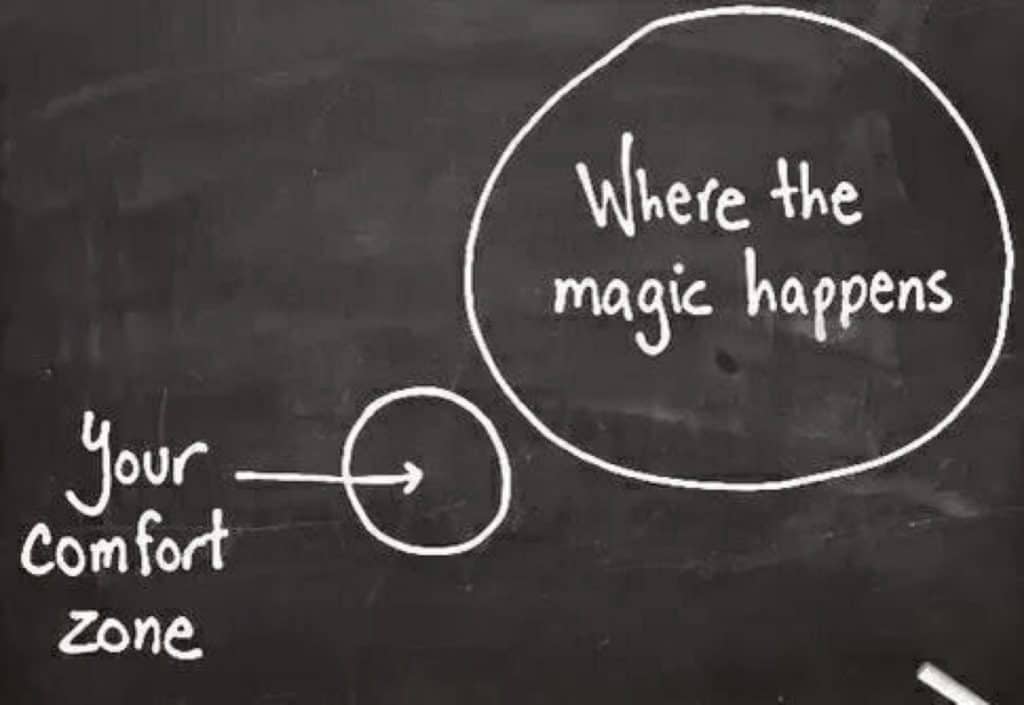
The origin of the term comfort zone and the White-Fairhurst Performance Hypothesis relating to the performance life-cycle
While researching this topic, I discovered similarities between the comfort zone theory and the Yerkes–Dodson Law, developed by Psychologist Robert M. Yerkes and John Dillingham Dodson in 1908. Based on my research, It appears the comfort zone theory is less black and white but rather grey, a balancing act based on where you fall or peak within the metrics of the Yerkes–Dodson Law.
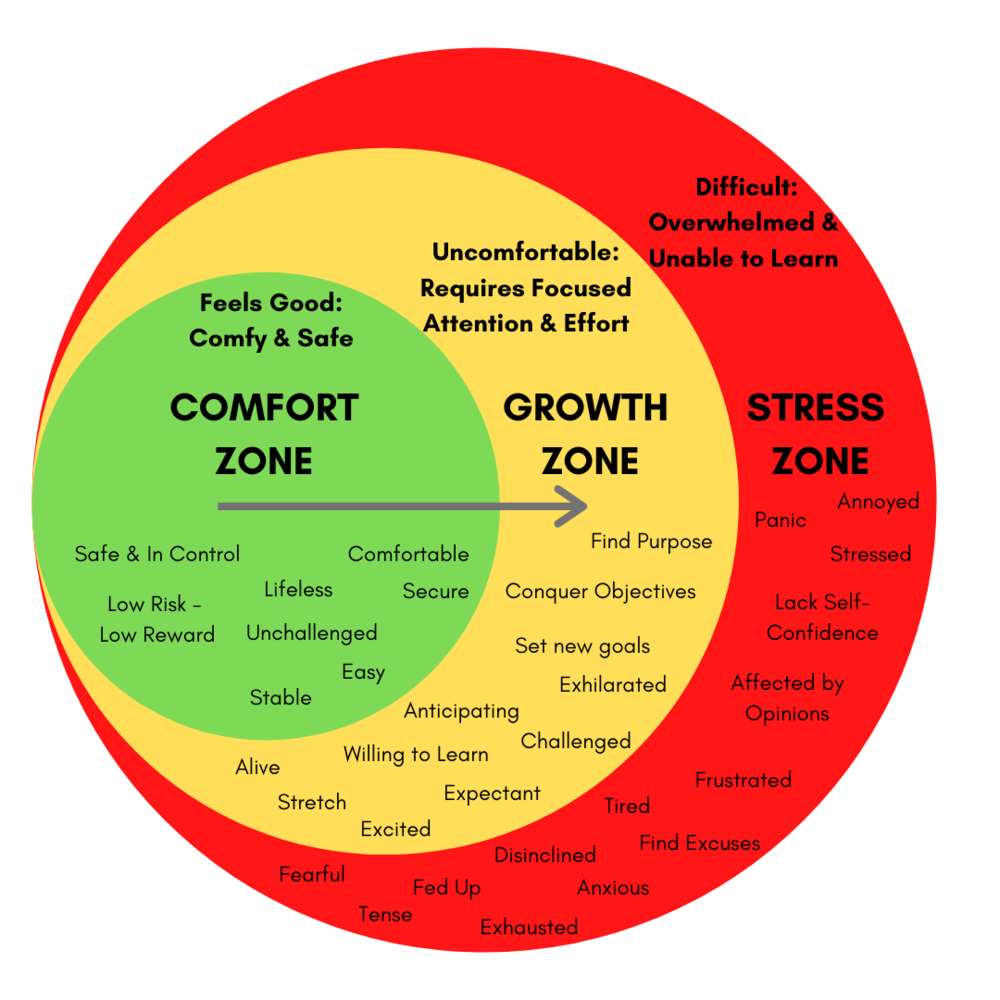
The comfort zone, a term coined initially by Alasdair White, a Business Management Theorist, in 2009, is a mental state often associated with limiting personal growth—usually identified as a safe space with decreased stress. In simple terms, the comfort zone is defined as a psychological state of mental security and reduced stress levels. I was interested in understanding why the concept of the comfort zone is viewed as such a negative thing since security and low anxiety are associated with psychological well-being. However, based on empirical research, it appears low levels of stress can be just as detrimental to your health as having too much pressure.
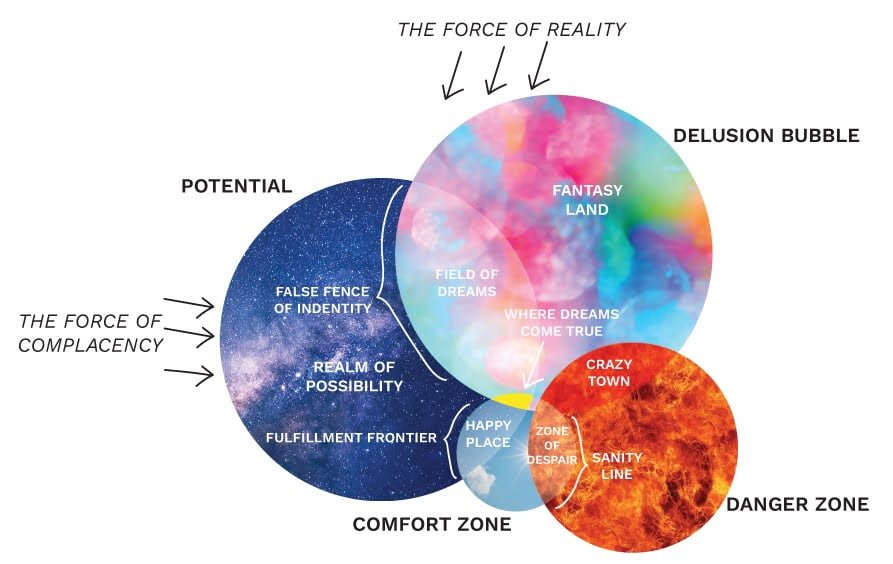
When we think about comfort, we think about contentment. A state of physical ease that relieves physiological and psychological discomfort. So why does the term comfort zone conjure up feelings of despair and associate itself with complacency?
Alasdair Antony Kenneth White was a management theorist born in England in 1952, respected in his field of study for his research and contribution towards deconcentrated network organizations. His best known for his research on performance management, a theory he hypothesized along with john Fairhurst. Together they created the White-Fairhurst Performance Hypothesis relating to the performance life-cycle. They then wrote the now-infamous comfort zone to performance management paper, which remains unchallenged to this day.
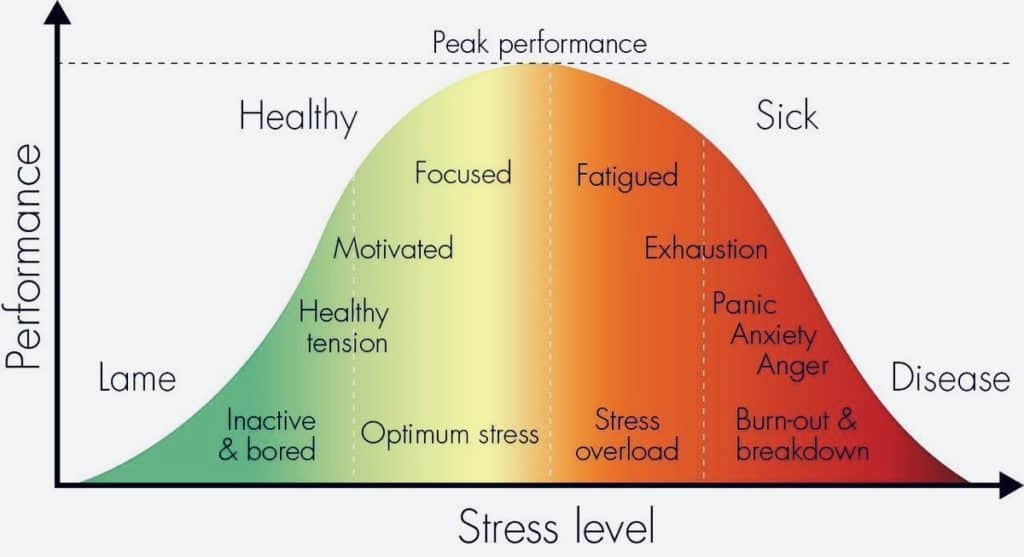
Their observations were intended to analyze leadership and performance in the workspace. Contrary to what you may see on the internet. The term is often misused or oversimplified to create easily digestible content. Based on their Research, the comfort zone was neither a good or a wrong place to be.

You could argue that our modern understanding of comfort zone has taken on an entirely new meaning since we currently associate it with stagnation and underachieving. The original study saw the comfort zone as a regular and normal place to be, except that you are less likely to think outside of the box or adjust to sudden life changes in the workplace. Today we’ve adapted this theory and incorporated it into all aspects of our lives, using it to reference our unfulfilling jobs, stagnating aspirations, failed relationships, and our decreased sense of self-motivation.
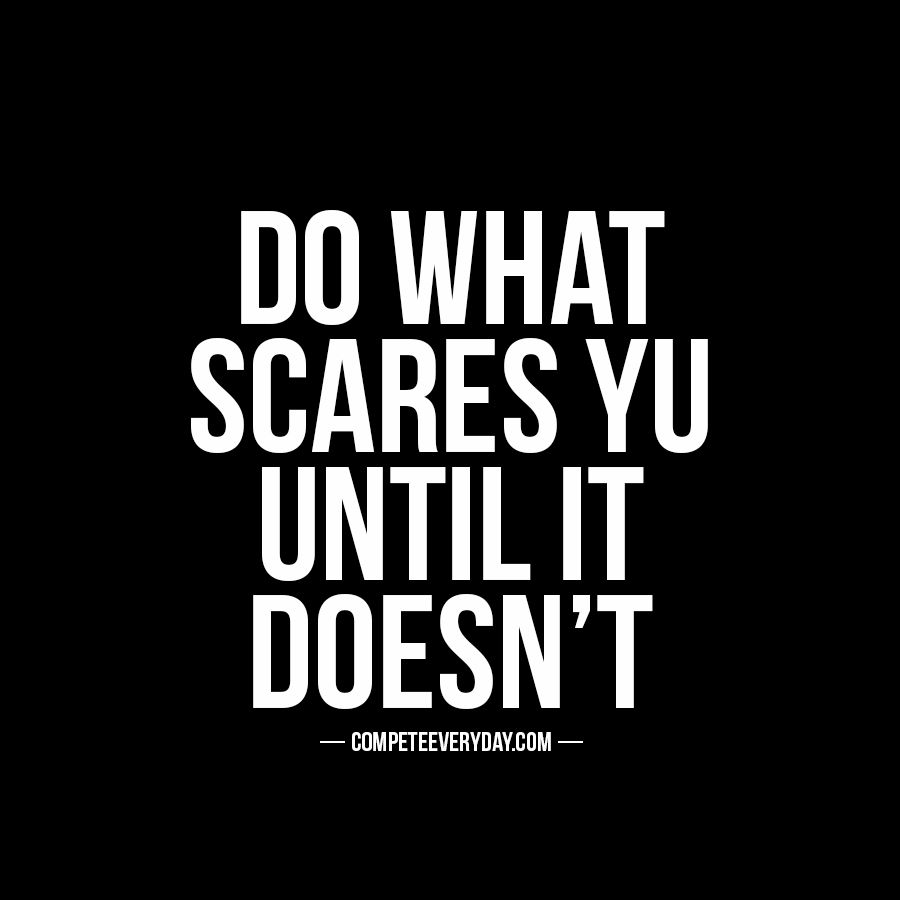
The original theory postulated that comfort was an excellent place to exist since it offers a sense of security. However, the research also indicated that the comfort zone presented less room for self-growth and optimal performance. The comfort zone is a term we are used to hearing so often, we’ve overlooked the keyword, zone. The word zone, defined as an “area or stretch of land having a particular characteristic, purpose, or use, or subject to particular restrictions” In other words, the comfort zone exists within a parameter. It dictates how far your can and can not go. Staying within the comfort zone doesn’t always mean things are bad. It simply means you’ll never know if it could get better. Life is unpredictable, and circumstances can always change. While comfort is a safe place to exist, we may misuse it and treat it like a symbolic comfort toy; we fear letting go because we fear failure and losing our sense of security that comes with predictability.
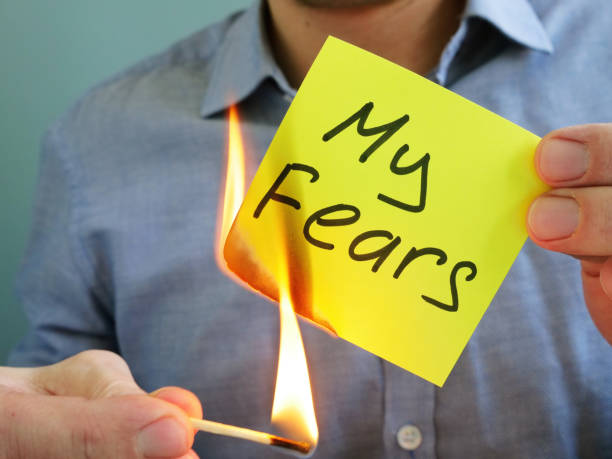
Work place and self development
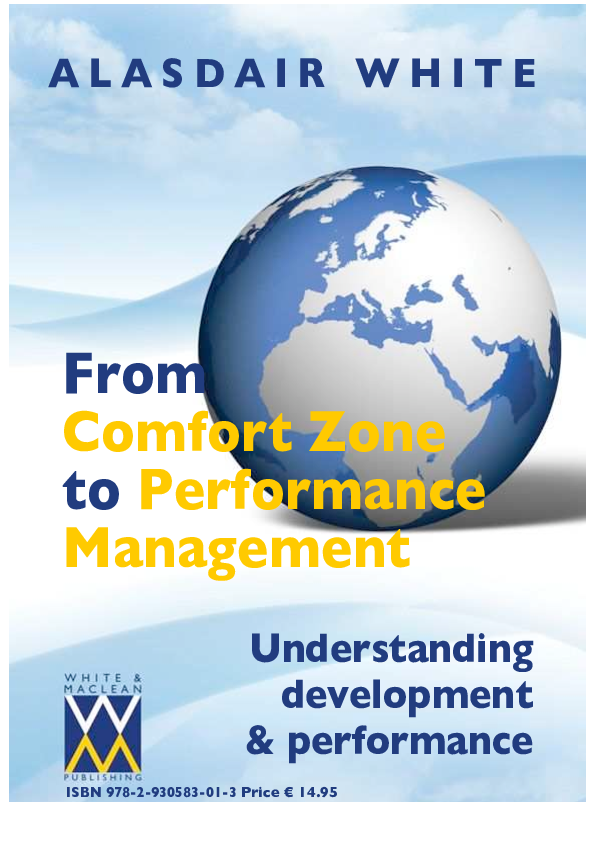
Since the White-Fairhurst Performance Hypothesis is primarily focused on improving performance in professional settings, their research suggested little room for improvement for optimal performance, and growth was present in the comfort zone. Data revealed the possibility of future dissatisfaction in professional developments and relationships. In other words, not good but not bad either, depending on what your personal goals were. If you have no desire for change, you might indeed remain happy and fulfilled for a while, provided no sudden life changes occurred. However, you were likely to fall into a psychological state of dissatisfaction due to under-stimulation and lack of challenging cognitive psychology activities. The comfort zone does not prepare you for sudden changes where malleability and thinking outside the box are crucial, particularly in professional development settings

The Yerkes–Dodson law
The Yerkes–Dodson law studies the relationship between pressure and performance; it ultimately dictates and measures the performance and increases physiological or mental arousal. However, there seems to be a point when reaching optimal performance levels decreases due to over-arousal and stress. Similar to how productivity decreases with little to no pressure due to lack of motivation and low stress levels. Thus it appears that we alternate between the comfort zone and optimal performance frequently, making it a balancing act between the physiological and psychological, rather than it being an actual permanent state of being.
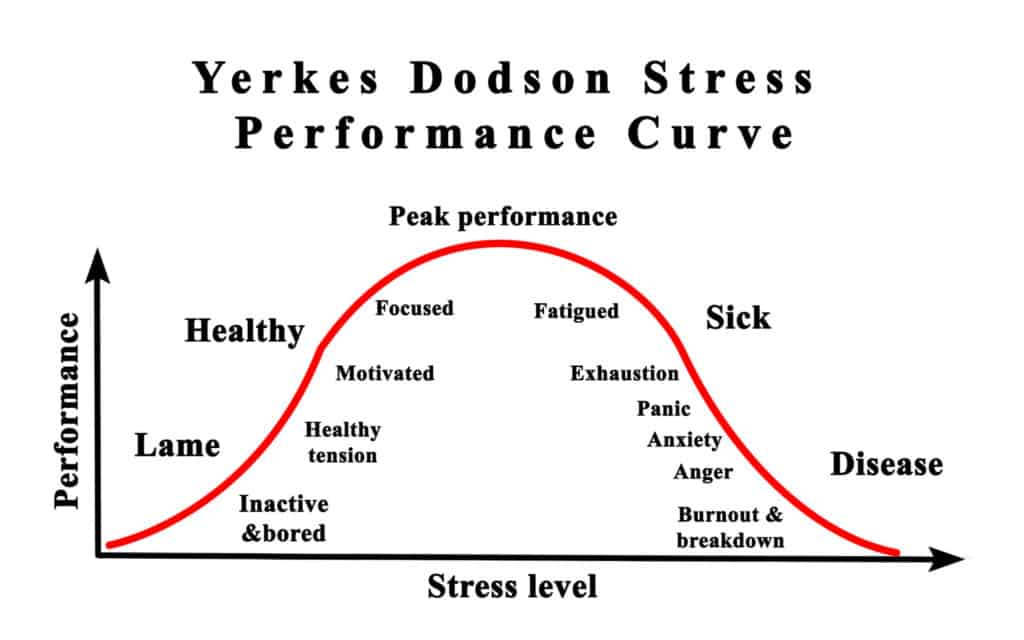
The Optimal performance zone – and the neurological link between creativity, stress, and working out.

While identifying critical data is challenging to assess and quantify. The ‘zone’ or ideal performance state is on the spectrum of various arousal levels that produces the best performance in a particular activity. Below is a graph that demonstrates The Yerkes–Dodson law. The diagram indicates that the comfort zone is not necessarily harmful unless you fall below (healthy tension and interest level). Only when falling below could result in underperformance, demotivation, and overall discontentment.
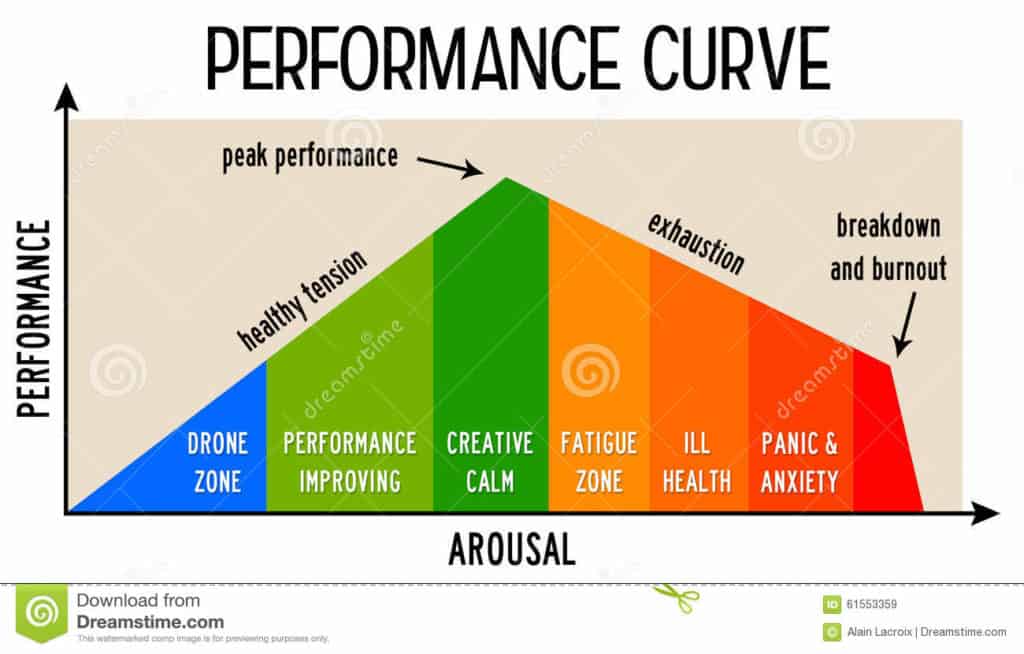
Since I am the author of this article, I’ve decided to coin a new phrase to expand on the comfort zone hypothesis; I call it the comfortable comfort zone and discomfort zone. As the graph indicates, the ( discomfort zone) Is where we begin to see a decline in overall performance, job, life, and relationship satisfaction. Multiple observational studies suggest that low stress can result in low motivation, decreased attention span, boredom, loss of inspiration, and creativity. Striving towards balance is often the key ingredient for reaching optimal performance peaks concerning psychological and physiological well-being. Incorporating some level of exercise is thus recommended for most people dealing with high levels of stress.
People dealing with low motivation, boredom, and lack of inspiration are often associated with low anxiety levels due to under-stimulation. Having a daily workout routine releases chemicals, hormones, and various neurotransmitters such as Dopamine (DA), noradrenaline (NE), and serotonin (5-HT), also known as feel-good hormones responsible for motivation and mood regulation.
We often associate stress with anxiety since chronic stress disrupts and impairs brain function. Loss of synapse regulation can result in loss of brain cells and cause the brain to shrink; this is not the ideal place to be. However, some levels of anxiety and stress can increase productivity and performance. Ideally, we want to decrease anxiety to a level known as eustress ( good stress). The optimal performance zone is the ideal place since it’s where we remain optimistic and motivated.
Fear of changing the comfort zone.

The only person capable of changing the trajectory of your life is you. Letting go of fear and stepping outside your comfort zone doesn’t need to feel overwhelming. We are born with the necessary tools to succeed but often not taught how to utilize them; once we understand that change and improvement do not require making colossal life changes but rather small ones, challenging yourself becomes less daunting. Actively decide to improve and change parts of your life that make you unhappy. Make a list identifying areas of development as well as your strengths. Begin implementing small but consistent necessary changes. Growth is becoming a better version of yourself, not someone else.
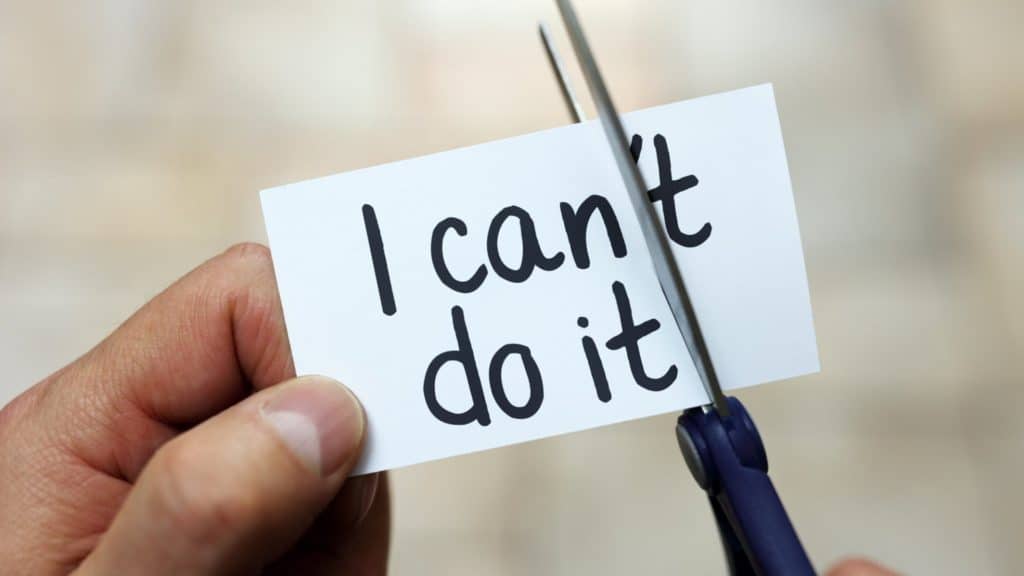
Although the comfort zone is a peaceful place with decreased levels of stress, it also provides limited opportunities for growth and self-development, albeit a safe and comfortable space. We often look for inspiration in the wrong places in search of motivation with no long-term solutions. We often fear what we can not control. And since you can not control everything, you may be less likely to implement new changes to self-improve since making changes and taking on the unfamiliar can feel daunting. Complacency prevents you from improving and achieving all the things you are capable of succeeding in. There are no lazy people, only uninspired and demotivated ones with a miss guided sense of direction.
Self-improvement is based on your personal goals, which will differ from the dreams and aspirations of someone else. I also think it is presumptuous to assume everyone desires or wants to change their life since “better” is subjective. We often make the mistake of measuring our self-worth up against the failure and achievement of others. Great motivational speakers don’t make you feel less worthy or superior to others; instead, they help you understand that everyone’s journey is different. We all view success differently; thus, it’s essential to become self-aware as it will allow you to remain self-focused on what truly motivates and inspires you to go after your goals.

Self-awareness is often the key to understanding where we fall within the parameters of genuine happiness, contentment vs. complacency, and lack of motivation. We will find ourselves content and happy during different times throughout our lives, that’s the comfort zone, while other times unhappy, uninspired, unfilled, and demotivated in the(Discomfort zone) resulting from under-stimulation while in the comfort zone. That’s not to say your comfort zone was the wrong place to be, instead indicative that something has changed, thus pushing you into a place of discomfort to self-reflect and evaluate your life. This entire process occurs to help you reassess your priorities and decide whether your current circumstances align with your further goals. If not, embrace the discomfort and buckle up; it’s time for a change. Self-awareness is often the key to understanding where we fall are within the parameters of genuine happiness, contentment vs. complacency, and lack of motivation.
Signs you”re stuck in a comfort zone
- You view change as something terrifying, not challenging.
- You don’t set long-term goals; your outlook on the future is no longer filled with optimism, wonder, and intrigue but predictable routine.
- You don’t have the desire to learn and try something new.
- You’re judgemental about other people’s believes and actions that do not align with yours.
- You’re bored, uninspired, but unsure why.
- You look for short-term comforts to fulfill a void, like sex, social media, substances, excessive spending, etc.
- Without challenging yourself, you are more likely to settle.
- Limit yourself to new experiences.
- Stay in relationships that no longer nurture you.
- Look for comfort in the wrong places, and stay in toxic relationships, situations.
- Remain in friend circles that you’ve outgrown.
- Become resentful, depressed, uninspired.
- You are limiting your professional growth.
- excess social media use
Conclusion.
The comfort zone is a psychological and behavioral construct. Familiarity is comfortable; it’s often a safe space filled with minimal routine stress and little risk. However, as stress levels decrease, so does motivation which can lead to reduced productivity and Procrastination. We may begin to lose motivation, a sense of purpose and feel depressed once we settle into complacency and no longer challenge ourselves. To truly thrive, we require a sense of purpose and reason to wake up in the morning. To succeed, we need to be conscious of how we balance our lives. Too much of anything is never a good thing. Instead, we should strive towards finding balance. Optimal performance is where we should aim to be since we’re the most motivated and happy.
Important
I want to empathize the importance of using your judgment to discern a safe and effective way to step out of your comfort zone without harming yourself. You do not need to go skydiving as your first option; even though I personally find it a great experience. Progress doesn’t require making big life changes, sometimes it’s the small things that impact our lives the most.
Below is an example of small life changes you can make to complete your ten things to expand your growth challenge.








Great read!
Thank you Victor, I really appreciate you taking the time to read it.
This is awsomee i need it.
I have to say this really hits the nail on the head and you cover a lot of important topics. Safe to say I am going to save this article and re read, as and when needed. Thank you for taking the time to write this as it has helped guide me and I hope it does a lot more people too! 😊
[…] The comfort zone and The science behind laziness. By Sharilynn H […]
[…] The comfort zone and The science behind laziness. By Sharilynn H […]